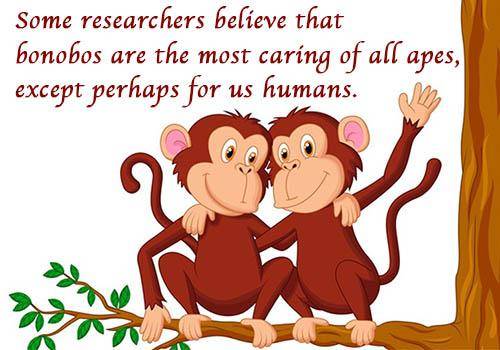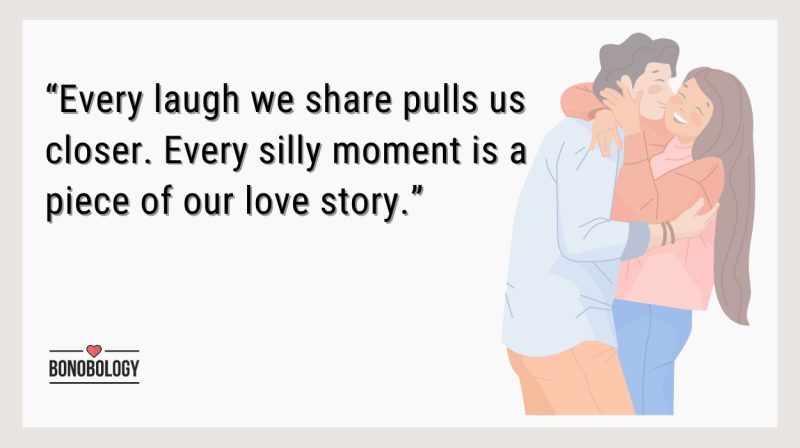Hello Readers!
Table of Contents
I am sure many of you must have wondered about this strange tongue twister of a name we picked for this website which is on the ‘experience of love‘. You must have also cursed us when mentioning it to others as you practiced the repeated B’s and O’s that the damn word contains. And God forbid if you tried to search for it again (where your system did not save it). You knew it was something around bobo, bolo, bono, but the exact spelling evaded you and you must have wondered if you should look for us or just let us be for picking such a name! What was wrong with simply going with a Bollywoody ‘loveology’?
The name Bonobology must have been on that thin edge ready to be forgotten many a time… and wasn’t. We would like to believe that somehow we speak of what you want to hear. And hence you kindly forgive us for this difficult name, look for us and find us, even when thousands of other sites are vying for your attention! For this, dear Readers, a big thank you.
And now moving on to why the name Bonobology
Bonobology is made from the words bonobo and logy. It defines the philosophy of one of our closest genetic cousins, the bonobos.

Until quite recently, bonobos were thought to be smaller versions of chimpanzees. In fact, bonobos and chimpanzees both share close to 98% of their genome in common with humans, meaning that their genomes are more similar to that of humans than they are to that of gorillas. This means that though they appear to be closer to gorillas, they are more closely related to us.
Chimps fight and murder, bonobos are peacemakers
But while chimps clearly follow the alpha-male dominance system and are generally aggressive and violent (especially in patrolling and defending of boundaries) bonobos are matriarchs. The power lies with the females, who form strong bonds with weak hierarchy and have shown no evidence of lethal aggression in defending home ranges.
Much of bonobo life revolves around one activity. Sex
It is probably one of the most important reasons why they are so peaceful. The study of bonobos can give us new insights on our backgrounds. In particular, where we get our gentler side.
The morphological growth of bonobos is similar to that of humans.
- Young bonobos lose their milk teeth between ages 5 and 7, puberty is between 9 and 11 years, and bonobo females have an ovarian cycle very similar to that of human females.
- We differ from bonobos only 1.6% in our DNA structures, which is less of a difference from the African elephant to the Indian elephant. And if this scientific fact does not impress you, maybe this fact below will.
- Bonobos, like no other species but humans, hold hands while walking around and, during copulation, look deep into each other’s eyes.
- Most animals, including chimps, have only a few fertile days every month during which they copulate. But bonobo females have sex through much of their cycle, even when there is no chance of getting pregnant – again very much like us humans.
Sex makes peace
Some researchers believe that bonobos are the most caring of all apes, except perhaps for us humans. And their conflict-resolving tactics are, to put it simply, too simple for words. When two separate bonobo groups meet in the forest, they ‘greet’ each other, bond sexually and share food, instead of fighting over territory. And they make love, a lot of it, and in every conceivable fashion. Bonobos have sex like we have handshakes.

Bonobos have sex like we have handshakes.
Sex permeates the fabric of bonobo society: sex maintains peace, cooperative relations, and is a way of mother-child bonding too. Martin Surbeck from the Max Planck Institute for Evolutionary Anthropology found that bonobo mothers will help to usher their sons into the best spots for meeting females, and they’ll sometimes help their sons in conflicts with other males.
Make love not war
These ‘hippies of the primate world’ – as primatologist De Waal, Professor at Emory University, calls them – use sex, instead of resorting to violence, as a method of social control. Intimacy makes it hard to stay angry. With all the happy hormones released by an orgasm, it probably would be difficult to stay angry and warlike!
Due to difficult access to and scarcity of bonobos, the majority of primate research has stayed with the more violent and patriarchal common ape, the chimpanzee. It seems there aren’t enough bonobos.
However, why should that stop us from learning about and from them. They could show us the way to creating a peaceful, loving community. One that believes less in ownership of the ‘another’ and more in love and harmony. Where the female of the species has and uses her powers to form strong relationships and peaceful societies. Where all relationship conflicts are resolved. Amicably.
Bonobology: Topics Around Relationships
- Affairs and Cheating:
- Definition: Exploration of extramarital relationships and the emotional dynamics involved.
- Content: Stories, causes, effects, and advice on handling and preventing affairs and cheating.
- Infidelity:
- Definition: Detailed discussions on unfaithfulness in relationships.
- Content: Signs of infidelity, reasons behind it, and strategies for dealing with betrayal.
- Breakups:
- Definition: Insights and guidance on ending relationships.
- Content: Coping mechanisms, stages of grief, and moving on after a breakup.
- Married Life:
- Definition: Examination of the dynamics within a marriage.
- Content: Tips for a healthy marriage, dealing with conflicts, and maintaining a strong bond.
- Love and Romance:
- Definition: Exploration of romantic relationships and the essence of love.
- Content: Building romantic connections, keeping the romance alive, and understanding love languages.
- Expert Advice:
- Definition: Professional insights and guidance on various relationship issues.
- Content: Articles from relationship counselors, psychologists, and experts offering practical advice and scientifically backed solutions.
- Dating Experience and Dating Tips:
- Definition: Guidance and personal stories related to dating.
- Content: Tips for successful dating, navigating first dates, online dating advice, and real-life dating experiences shared by individuals.
Isn’t that what each relationship deserves?
Raksha Bharadia
Founder
Your contribution does not constitute a charitable donation. It will allow Bonobology to continue bringing you new and up-to-date information in our pursuit of helping anyone in the world to learn how to do anything.






















Featured
130 Beautiful Things to Say About Your Wife
101 Silly Questions To Ask Your Partner For Fun, Laughter, And Bonding
200 Heart Touching Love Messages For Her
50 вопросов с подвохом, которые стоит задать своему парню
250 випадкових запитань, які можна задати своєму хлопцеві
Kız Arkadaşınızın Bayılacağı 170 Şirin İsim
21 sinais de que ele gosta de fazer amor com você
101 Όμορφα κομπλιμέντα για γυναίκες για να λιώσουν τις καρδιές τους
140+ χαριτωμένα ψευδώνυμα για να καλέσετε τον φίλο σας
35 cartas de amor para él que lo harán llorar
35 lettres d’amour pour lui qui le feront pleurer
Uzmanlar Tarafından Desteklenen Erkek Vücut Dili Çekiciliğinin 20 İşareti
25 lettres d’amour profondément émouvantes pour elle qui la feront pleurer
35 lettere d’amore per lui che lo faranno piangere
10 Mutlaka İzlenmesi Gereken Genç Erkek Yaşlı Kadın İlişki Filmleri
25 lettere d’amore profondamente emozionanti per lei che la faranno piangere
45 сексуальних, брудних текстових повідомлень для вашого хлопця
45 Σέξι, Βρώμικα Μηνύματα για τον Φίλο σου
45 mensajes de texto sensuales y atrevidos para tu novio
Erkek Arkadaşınız İçin 45 Seksi, Müstehcen Mesaj